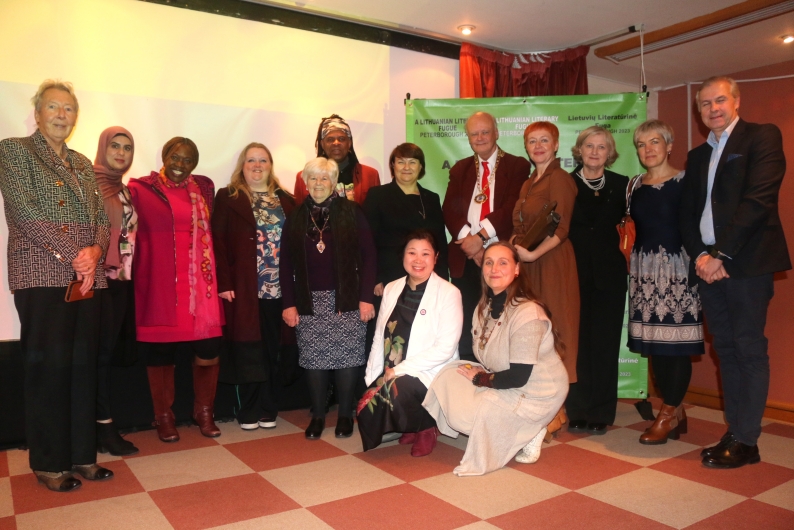

 22 June 2023
22 June 2023
The Martynas Mažvydas National Library of Lithuanian, the Association of District Public Libraries and the Ukrainian Library Association organised the Lithuanian and Ukrainian Libraries Forum “The Role of Libraries in Strengthening the Democratic Society” on 7-9 June in Vilnius, Kaunas and Klaipėda.
The aim of the event was to strengthen cooperation between Lithuanian and Ukrainian libraries and to highlight the role of libraries in strengthening democratic societies. The daylong programme of the Forum developed the theme of media and information literacy education in various forms: meetings, presentations, workshops, discussions, and the sharing of practical examples and experiences of libraries’ activities and initiatives to strengthen and inclusive society and its citizenship.
The Deputy Minister of Culture, Rimantas Mikaitis, welcomed the Forum. He thanked libraries for the valuable initiatives they have implemented since the outbreak of the war in Ukraine, for opening their doors to war refugees in a wide and welcoming manner, and for their kind words and support.
In his presentation “The Library is an integral part of the state’s information policy, culture, education, science, and economic progress”, the Director General of the National Library, Prof. Dr. Renaldas Gudauskas, pointed out that the National Library has been focusing on Ukraine since 2014, when Russia launched its military invasion of the country.
“We pay a lot of attention to the cultural heritage and literary achievements of our friends in Ukraine, and we try to reflect the dramatic present-day situation of the country, thus contributing to the promotion of Ukraine’s name and cause. We cooperate with Ukrainians and develop joint projects, such as film screenings, exhibitions, book presentations, and visits by Ukrainian children to the library. We have considerably increased our holdings of books and publications in Ukrainian, and we have employed Ukrainian staff. At the beginning of November last year, the production of trench candles was initiated in our workshop at the National Library. We never expected to achieve such results and to receive such support and attention from Vilnius residents, people from all over Lithuania, and, of course, the staff of the National Library for this social initiative,” said the Director-General.
Larysa Luhova, Vice-Chairwoman of the Ukrainian Library Association, spoke about the role of Ukrainian libraries in strengthening democratic society, which was highlighted during the war. “Our actions are manifested in practical solutions and adaptation to the environment. Libraries are taking initiatives to create shelters on their premises for families during Russian bombing raids, to design camouflage nets for the army, to fight disinformation, and to mobilise the international community for help and support. After February 24, 2022, a new reality began. Today, we cannot say exactly how many libraries are working in Ukraine. However, we can say that 89 libraries have been completely destroyed by the Russian fascists, and 602 are partially destroyed and need to be resurrected from the ruins. In the occupied territories, the Russians are destroying library collections in Ukrainian, especially books on Ukrainian history, culture, and education. They are trying to destroy our memory, our language, but they will not succeed. From various high platforms around the world, we are speaking the truth about the war, collecting documents proving Russia's crimes against culture and libraries,” said Ms. Luhova.
The Forum repeatedly mentioned possible cooperation between Lithuanian and Ukrainian libraries and the development of joint projects. With the war in mind, it was suggested that projects be developed using remote video conferencing platforms. The challenges faced by modern library staff and the skills needed to overcome them were also discussed. The importance of information technology and public relations professionals was highlighted.
At the end of the meeting, the Lithuanian and Ukrainian colleagues wished to implement many projects that would be useful for the communities and, of course, to achieve Ukraine's victory.



